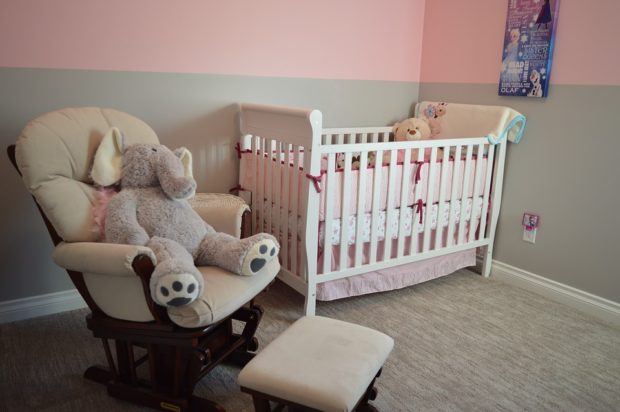Self-Esteem And Your Step Children
It’s not surprising stepfamilies are at a higher risk of being dysfunctional than nuclear families.
Over the years, several studies have explored the consequences of parental death or separation on children and young adults. Many studies have also concluded children of divorced parents often perform lower socially and academically than children with married parents.
Children who experience grief or watch their parents go through a messy divorce tend to suffer more with self-esteem issues because of the trauma they might have gone through. The ability for such children to trust or express their feelings is also severely affected.
Also, there’s a higher chance of physical, emotional or sexual abuse of children who live with a stepparent. In fact, there are other long-term effects of parental death or divorce on a child which includes substance abuse, criminal behavior, inability to hold a job and vulnerability to depression.
The emotional and psychological effects of divorce on stepchildren can be dangerous and long-lasting if it’s left unchecked by the biological parent or the stepparent. Young adults in a stepfamily environment may experience stress resulting from the breakup of his or her original family.
Also, the relationship with a stepparent is often strained and complicated as it’s common for many young adults to blame them for the breakup of their parent’s union.
The relationship with the parent without custody is not left out; it may suffer and become unstable forcing the child to feel unloved and unwanted. Ultimately, this can make them struggle with low self-esteem.
Also, the relationship with the present parent can become strained because of the stepparent presence. Stepsibling relationships are often dysfunctional and highly competitive too which can take a toll on a young adult’s self-esteem.
Signs of Low Self-esteem in Young Adults
Good self-esteem is essential especially in young adults who are going through their formative years. It will help them take healthy risks, try new things and learn.
A young adult with good self-esteem is more likely to have a positive and healthy future. On the other hand, children with low self-esteem will suffer from self-doubts and the feeling of unworthiness.
Some of the telling signs a child suffers from low self-esteem include
- Difficulty in making friends and socializing.
- Lack of motivation or interest to try new things.
- Feeling unloved and unwanted.
- Frequent experience of stress and anxiety.
- Constant negative talk about
The factors leading parents to end their marriages contribute to the seriousness of the effect on the children. There some effective measures a parent or stepparent can take to help a stepchild who has passed through a traumatic experience like divorce or death build their self-esteem.
Maintaining Continuity – Continuity of the usual activities already present in a child’s life is vital to minimize the effects of divorce or death of a parent. It will also give the child a sense of security and stability. The available parent whether in the case of death or divorce should also continue in the same parental capacity to avoid reasons for the child to feel unloved.
Social Networks – The support from neighbors, churches or schools often reduce the impact of the disruption in the lives of the children. These social institutions provide access to role models, moral guidance and give young children a sense of security.
Communication – Effective communication to young adults in time of death or divorce can reduce the trauma. Withholding vital information will cause confusion and fear in young adults.
Boosting a Young Adults Self-Esteem
There are several ways parents or stepparents can help boost a young adults self-esteem. Some of these activities can be physical or emotional. Encouraging them to take part in these activities will improve their self-esteem and overall mental and physical well-being.
Also, it will help them handle stressful situations with ease.
Practicing Strengths – Engaging in activities the young adult enjoys can boost their self-esteem. It’s the duty of a parent or step-parent to provide resources and time for them to participate in activities that can build their confidence.
Encourage these young adults to focus on their strengths and not weaknesses. Praising them for good behavior and accomplishment will make them proud of themselves and increase their self-esteem.
Journaling – Encouraging the young adult to express their most profound thoughts, fears and desires through journaling. It will also enable them to process such thoughts and work through them efficiently.
Affirmations – One sure way to boost self-esteem is through positive statements about oneself. Saying positive things regularly about themselves will help them focus on their most admirable qualities and less on the negative ones.
Value Boards – It’s important for young adults to have a picture of what they want to be, their goals and dreams. There’s no better way to achieve this than the use of a value board. In no time, they begin to put down what they want and not what others expect of them.
Parents or stepparents should encourage the use of a value board to build a child’s confidence.
Helping Others – Volunteering to help others or the less fortunate can remind us of our worth and help increase our self-esteem. Individuals who help others also experience a new level of gratitude which helps them focus on the important aspects of their lives.
Parents should encourage children who have low self-esteem to engage in voluntary works.
Meditation and Mindfulness – Although meditation doesn’t sound like a pleasurable activity for young adults. It’s a great way to increase one’s self-esteem.
Sitting alone in a quiet room for several minutes every day or listening to the birds or trees in a park or beach are some ways we can practice relaxed consciousness.
Tending to a Garden – Gardening has proven to have many benefits. Nurturing a plant and watching it grow reminds us of the importance of self-care.
Their level of confidence will increase when they hold themselves in high esteem.
Every parent or stepparent should be able to first identify the reason for low self-esteem. This should be done before working out ways on how to help a young adult.
Irrespective of the reason for low self-esteem in a young adult. Helping your child understand almost everyone has a negative experience at some point can help them feel more confident about themselves.
Any more tips for boosting a young adults self-esteem? Please share them in the Comments. Thank you.






